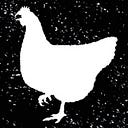The Discarded Life: A discussion with Adam Kirsch
By Audrey Fong
Adam Kirsch’s The Discarded Life is a collection of moving and meditative poems that evoke a Gen X childhood in Los Angeles, showing how the experiences and recognitions of early life continue to shape us as adults. Kirsch uses Gen X landmarks to tell a story of emotional and artistic coming of age, exploring universal questions of meaning, mortality, and how we become who we are.
Adam Kirsch is the author of four poetry collections and several books of criticism. He has previously taught at Columbia University and is currently an editor at The Wall Street Journal.
Audrey Fong: Your latest collection is made up of poetry portraying a Gen X childhood in Los Angeles, much of it based on your own childhood. How did Los Angeles shape who you are as a writer?
Adam Kirsch: I was born in west L.A. and lived there until I graduated high school; then I left for college and have lived on the east coast ever since. As a result, to me L.A. means not just a place but a time as well. Even though I go back all the time to visit, in a certain way the city feels irrecoverable, the way childhood does. That’s one thing I hope to communicate with the title The Discarded Life. When we’re young, we’re eager to discard childhood so we can grow up, but later we’re compelled to dig it up and examine it, like archeologists of the past.
AF: You’ve lived in New York for quite a while now. What made you decide that now was the time for a collection on Los Angeles?
AK: I wrote the poems in the two years after I turned 40. I didn’t consciously connect that milestone with the impulse to write about childhood, but there must be a connection. I had become a different enough person that I could think about my childhood with some distance and objectivity. I have a teenage son, so my own teenage years are definitely historical by now!
AF: What differences have you noticed between Los Angeles and New York? How do those differences, the impact of your childhood versus the influence of your new city, affect your work?
AK: It’s hard for me to know how much of the difference I perceive has to do with the places themselves and how much is a result of being a child in one city and an adult in the other. To me New York feels like a more difficult, demanding, conflict-ridden place than L.A. There must be some truth to that — it’s a reason people often give for leaving New York and moving to L.A. But I was also too young to fully understand L.A.’s own difficulties and conflicts when I was growing up. The poems try to reflect some of that blending of fact and myth, insight and ignorance.
AF: The collection uses several Gen X landmarks like Devo, Atari, and the Challenger disaster to tell a coming-of-age story both emotionally and artistically. Do you have a specific memory attached to one of these events or phenomena that made its way into The Discarded Life?
AK: This is my fourth book of poems and the first in which I’ve written in a directly autobiographical way; there are a number of details in the book that come straight from life. For instance, I vividly remember that during the Los Angeles riots in 1992, I woke up one morning and saw that the cars on our block were covered with a layer of ash, carried on the wind from the burning buildings in South Central. It showed how nearby this important event was, even though I was experiencing it only on the TV news — a kind of disjunction that I write about in several contexts in The Discarded Life.
AF: You regularly write both poetry and criticism. How does your approach for writing one differ from the other? Do you find the practice of writing each genre ever informs the writing of the other?
AK: I keep them pretty separate mentally, for the sake of self-preservation. Writing poetry requires a kind of unselfconsciousness — not thinking too much about what you’re doing — while criticism is just the opposite, since it involves thinking closely about how and why a poem works. Broadly speaking, though, I tend to like writing about poets who value the kinds of things I’d like to achieve in my own poems — whether that means a kind of formal patterning or a way of putting themselves into their work.
AF: I wanted to end with hopefully a fun question — what’s your favorite memory of Los Angeles?
AK: There are a lot of candidates, but I’ll say walking on Santa Monica beach with my father when I was very young, looking for sea glass.
Grab a copy of The Discarded Life and support an independent bookstore by doing so here.
